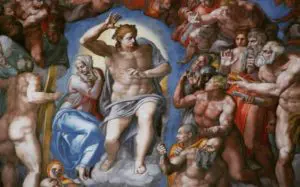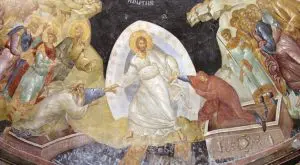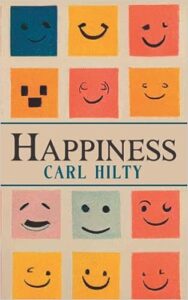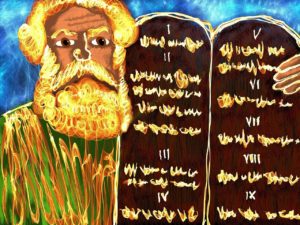In this issue, I would like to discuss the Christian theory of hell.
Hell is sometimes called “Gehenna” or “Hades,” a name of Old Greek origin.
Roughly speaking, the following differences seem to exist
- Gehenna: eternal hell
- Hades: where the unbeliever awaits the Last Judgment
Then, I feel that the following classification could be made.
- Gehenna: Hell (eternity)
- Hades: Purgatory (temporary stay)
However, in the English translation of the Bible, the translations are unified in HELL and do not seem to be divided into different translations.
Dante’s Divine Comedy is famous for its depiction of hell.

Although there is no particular biblical basis for each hell, I believe that Dante had some spiritual ability and the work is highly literary and fragrant, so I would recommend reading the “Inferno” section alone.
Now, however, for us living people, we have many concerns such as “Is hell real?”, “If so, what kind of place is it?”, “Isn’t it too severe to be burned in eternal fire?
In this article, we would like to examine what kind of place hell is in Christianity.
Christianity, where heaven and hell are not clear
The point is, “what is the afterlife like?” In addition to heaven/hell, there is also the idea of “purgatory,” which is unique to Christianity.
*Purgatory, however, is not recognized by Protestants.
In fact, there are few clear descriptions of heaven, hell, and purgatory from the biblical information.
In particular, I think it is safe to say that there is no direct reference to “purgatory”.
When the Bible speaks of heaven/hell, it is usually in connection with the “Last Day,” or “Last Judgment.
*Reference article: When will the Last Judgment Come? – Relative and Existential Apocalypse

For example, the following statements about the Last Judgment are found in the Bible. It’s a bit long, but let me quote it.
“When the Son of Man comes in His glory, and all the holy angels with Him, then He will sit on the throne of His glory. All the nations will be gathered before Him, and He will separate them one from another, as a shepherd divides his sheep from the goats. And He will set the sheep on His right hand, but the goats on the left. Then the King will say to those on His right hand, ‘Come, you blessed of My Father, inherit the kingdom prepared for you from the foundation of the world: for I was hungry and you gave Me food; I was thirsty and you gave Me drink; I was a stranger and you took Me in; I was naked and you clothed Me; I was sick and you visited Me; I was in prison and you came to Me.’ “Then the righteous will answer Him, saying, ‘Lord, when did we see You hungry and feed You, or thirsty and give You drink? When did we see You a stranger and take You in, or naked and clothe You? Or when did we see You sick, or in prison, and come to You?’ And the King will answer and say to them, ‘Assuredly, I say to you, inasmuch as you did it to one of the least of these My brethren, you did it to Me.’ “Then He will also say to those on the left hand, ‘Depart from Me, you cursed, into the everlasting fire prepared for the devil and his angels: for I was hungry and you gave Me no food; I was thirsty and you gave Me no drink; I was a stranger and you did not take Me in, naked and you did not clothe Me, sick and in prison and you did not visit Me.’ “Then they also will answer Him, saying, ‘Lord, when did we see You hungry or thirsty or a stranger or naked or sick or in prison, and did not minister to You?’ Then He will answer them, saying, ‘Assuredly, I say to you, inasmuch as you did not do it to one of the least of these, you did not do it to Me.’ And these will go away into everlasting punishment, but the righteous into eternal life.”(Matthew 25:31-46)
From a straight reading of these scriptures, it seems that the main points can be summarized in the following three points.
- Heaven/Hell are apparently associated with “the end of days” and “the Last Judgment”
- It is not clear whether heaven or hell really means “the other world.
- The blessed will have eternal life, and the damned will suffer eternal punishment
In particular, the third, “eternal punishment,” is somewhat too severe, and it has been historically debated whether this is a problem in light of God’s infinite love.
Because this part is too strict, believers will suffer from guilt, and non-believers will tend to go in the direction of “I can’t believe it very much.
So, in the end, “purgatory” as an “intermediate realm” also came into play.
Purgatory is a place set aside for “souls who are not guilty enough to go to hell, but need purification by fire to go to heaven.
If those who have gone to Purgatory atone for their sins here, their souls will be purified and they will be able to ascend to heaven.
Incidentally, another place besides Purgatory was also considered: the “Limbo”.
Limbo is a place for those who lived before Jesus Christ.
Even those who were highly virtuous were not baptized before Christ, and therefore could not be saved.
However, “it would be unbearable to send them to hell,” so a Limbo was probably set up.
Or, infants who died before their baptism were also considered to go to the Limbo.
So, the famous people (elders) before Jesus, such as Adam and Eve… in the Old Testament, were thought to live here in the Limbo.
And there is another way of understanding that Jesus’ descent into the underworld after the crucifixion until his resurrection three days later was to raise the inhabitants of Limbo to the Kingdom of Heaven.

Christ is about to raise Adam and Eve to heaven.
Back to Purgatory.
As for purgatory, we can’t find any clear evidence for it in the biblical writings.
Among those dared to be cited as grounds for purgatory are, for example, the following sentences.
their work will be shown for what it is, because the Day will bring it to light. It will be revealed with fire, and the fire will test the quality of each person’s work. If what has been built survives, the builder will receive a reward. If it is burned up, the builder will suffer loss but yet will be saved—even though only as one escaping through the flames. (1 Corinthians 3:13-15)
In this passage, the context of “fire” is not “eternal fire of works” but “yet will be saved—even though only as one escaping through the flames”.
So, “there is fire as a process of purification, not eternal fire,” and this is the basis for purgatory.
However, I would say that this interpretation is unreasonable or a bit confusing.
But the setting up of the intermediate realm of “purgatory” would not have eliminated the awfulness of hell.
The “damned” (in short, those who do not believe in Jesus) are still going to burn in eternal fire.
And the question of whether the awfulness of hell is contrary to God’s infinite love is still unanswered.
That is why another school of thought has emerged that it is better to interpret “hell,” that is, purgatory, as another way of thinking.
In other words, hell in Buddhism corresponds to purgatory in Christianity.
In Buddhism, there is the idea of “Six Paths”.
In Buddhism, hell is not “eternal punishment” because even if one falls into hell, he/she will go back to another world through reincarnation.

Conclusively, I think this interpretation is the clearest.
That is, it is not “heaven – purgatory – hell” but “heaven – purgatory” dualism.
This idea is more Neo-Buddhist in its clarity.
Purgatory is hopeful because, although there are trials of fire, it is a process of purification of the soul, and people can return to heaven someday.
But again, as quoted above, Jesus’ words clearly say “eternal punishment,” so as far as the Bible is concerned, “hell” must also be acknowledged.
So, in the end, the following is a summary of what happens to a person after physical death in Christianity. (Well, this is just one way of putting it. (Well, this is just one way of putting it. Even within Christianity, different denominations have different interpretations,)
- After death, “temporarily suspended” to heaven, hell, purgatory, or Limbo.
- Jesus returns in bodily form in the “last days.
- The dead will be given bodies again.
- Judgment: those who will enter heaven and those who will not.
- Those who will enter heaven (those who will be saved) are “those who believe in Jesus and His resurrection” and “those who have had their souls purified in purgatory.
- Those who enter heaven will be given eternal life. Those who do not will face eternal death. One goes to heaven in the physical body. Purgatory, as an intermediate realm, is dissolved.
For non-believers, there is resistance to the idea of “being given flesh again.”
This is, after all, “in this world, not in the next.
Then again, we don’t really understand the “other world” in Christianity…and so the question comes full circle around to the same point.
Then there’s another point of contention: “If the sins of all mankind were supposedly atoned for in Jesus’ Passion in the first place, why are we being asked to sin again?
In this way, there are many Christian doctrines that are not clear to the rational mind.
So, when I ask these questions to priests and pastors, they ultimately say, “As a creature, human beings cannot understand the omnipotence and transcendence of God,” and so they say, “Just believe!
Of course, even I agree that human reason cannot fully grasp the Almighty God.
Preach the Dharma according to the other person’s inclinations
Now, this may seem a bit of a departure from the “heaven/hell theory,” but I would like to consider the question, “What makes the Bible and the theology as interpreted from the Bible so difficult?
Jesus as a man of letters and poet
One reason for the worldwide spread of Christianity is simply that the Western world has become politically and economically powerful in modern times, but another reason is that the words of Jesus resonate with the senses and are a comfort in this difficult world.
In fact, compared to the Buddhist scriptures and the Qur’an, Jesus’ words are more poetic, or beautiful, in that they resonate very much with the senses.
On the other hand, there is a disadvantage in that “extreme expressions,” which are common in poetic expressions, are inevitably more frequent, and as a result, can easily lead to misunderstandings.
The eternity of hell is also described in several biblical accounts.
If your hand or your foot causes you to stumble, cut it off and throw it away. It is better for you to enter life maimed or crippled than to have two hands or two feet and be thrown into eternal fire. (Matthew 18:8.)
“Then he will say to those on his left, ‘Depart from me, you who are cursed, into the eternal fire prepared for the devil and his angels.(Matthew 25:41.)
I think these, “eternal fire” should also be considered from the aspect of poetic expression.
Well, even in romantic situations, people say things like, “I will love you forever.
However, this is probably a poetic rendering of the current existential feeling of “I want to be with you all the time” as “forever,” rather than literally “forever.
The person who is being told the story already understands this, and is moved by the poetic sentiment.
It would be disrespectful to the Bible to say “the same thing,” but I still think that “enter into eternal fire” and “abide in eternal life” should also be interpreted poetically.
The “joy of the soul” as measured by the scale of God/Christ, and “sin” as its inverted form, are “so different” that they “seem eternal” to man as an existential being.
The Buddha said something similar.
To those who have ears, the gates of immortality have been opened. (Saṃyutta Nikāya)
I think this scripture means, “By realizing the truth, death can be conquered.
But the fact is that human beings have eternal life, whether they realize the truth or not.
It only means that before one realized the truth, “death” was literally thought of as death and people were terrified of it, but by realizing the Buddha Dharma, one can overcome this suffering.
The point is that poetic expressions, which may seem extreme, are sometimes used as part of the methodology of preaching.
The following is a Zen question and answer.
Question: “What is a Buddha?”
Answer: “It’s a spatula that scrapes off dung!” (The Gateless Barrier: Question 14.)
Well, it is not a “beautiful” expression, but sometimes, a method is used to make the other person realize the truth by hitting him or her with what seems to be a “polemic” in this way.
When we think of “Buddha” or “truth,” we think only of the sublime and beautiful, but there are also seemingly evil and dirty things in the world, aren’t there?
However, if the Buddha is the Reality, then literally, “the Reality covers everything,” and the “spatula that scrubs away dung” is also one of the manifestations of the Buddha = the Reality.
Therefore, in order to make people realize that “the true existence is the total existence that transcends the phenomenal sense of “clean/unclean”, the person who answers dares to answer, “A Buddha is a spatula that scrubs away dung!.
Jesus, who was highly qualified as a poet as well as a religious preacher, preached according to the mood of his interlocutors.
He often preached in such a way as to “enlighten the interlocutor to the truth by daring to hit him with words that sound polemical.
After all, there are many other expressions in the Bible that would be strange if taken verbatim “as it is.
Well, this kind of bending of interpretation is a phenomenon that often happens when a religion reaches the end of its useful life.
Since the Buddha taught no-self, it is the same cause that “there is no self” equals “there is no soul,” which is interpreted in a perverse way.
*Reference article: Buddhism Does Not Deny The Spirit(Soul) – Correcting The Error of The No-Self (Anattā) Interpretation
This interpretation comes from the mindset of taking words as they are and not trying to decipher their true meaning, or from the mindset of wanting to believe that there is no soul.
Jesus, who only had almost three years to evangelize
Related to the above is the aspect that in Jesus’ case, he did not have enough time to preach systematic teachings.Related to the above is the aspect that in Jesus’ case, he did not have enough time to preach systematic teachings.
With only almost three years of missionary time, it would be difficult to preach a systematic teaching like Shakyamuni Buddha, who preached the Dharma for 45 years.
In the Garden of Gethsemane, Jesus prays that
Going a little farther, he fell with his face to the ground and prayed, “My Father, if it is possible, may this cup be taken from me. Yet not as I will, but as you will.” (Matthew 26:39)

Some interpret this as “a glimpse of the human Jesus” here, but it is not.
This prayer should be interpreted as a question, “Will that really convey the truth?” even though Jesus dares to go to the cross in order to achieve continuity with the Old Testament prophecy and to set an example of agape.
In fact, although there were many crowds who followed Jesus, most of them wanted him to cure their illnesses, see miracles, or become political leaders.
I am sure Jesus must have had such reservations about how well the teachings themselves were being conveyed and whether the teachings would really remain for future generations.
Also, during Jesus’ lifetime, the twelve disciples’ understanding of his faith and teachings was not sufficient.
So, Jesus had a lingering question, “Is this really the right scenario?
“Biblical interpretation” is rightly allowed
I have said “interpretation, interpretation” several times, but some Christians may think, “How can I interpret the Bible in the first place?
However, what did Augustine, an ancient church father who is ranked as a “saint” in the Catholic, Anglican, Lutheran, Orthodox, and non-Chalcedonian churches, think about biblical interpretation?
In his “Confessions,” one of his major works, Augustine was inspired by the teaching of his teacher, Ambrosius, that “the letter kills, but the spirit makes alive,” and “confessed” as follows
He spiritually interpreted biblical passages that, taken literally, seem to teach wickedness, removing the shroud of mystery and revealing the meaning. (Confessions, Book VI, Chapters 4-6)
Good in Heaven – Purgatory dualism and Resurrection of the Soul
This time, the conversation has gone beyond the “heaven/hell theory”.
The following is a summary of the topic.
- The Christian term “purgatory” is close to the truth of the actual hell.
- There is not “eternal fire,” but rather “hell as a process of purification of the soul,” and through “repentance,” the soul can return to heaven.
In this regard, we should take the scripture in Isaiah as it is.
I will not accuse them forever,
nor will I always be angry,
for then they would faint away because of me—
the very people I have created.(“Isaiah” 57:16)
Then, Resurrection in the body” is, as I mentioned in another article, a mixture of Egyptian resurrection beliefs, and in fact, “resurrection as a soul” is the correct answer.
This “transition to the spiritual life” is something that those who have thought (or experienced) Christianity correctly can understand, for example, Carl Hilty says the following in “Happiness, Part III”.

The resurrection of the person is one of the most definitive promises given by Christianity.
Of course, it is not a “bodily resurrection” in the literal sense of the Christian Articles of Faith. (“Transcendent Hope,” v. 3)
I think this is a frightening insight.
It is only when we think in this way that we can clearly understand the meaning of Christ’s words to one of the criminals who also suffered the same crucifixion.
Then he said, “Jesus, remember me when you come into your kingdom.”
Jesus answered him, “Truly I tell you, today you will be with me in paradise.” (Luke 23:42-43)
Since this criminal cannot be resurrected today as a physical person, the context is still “resurrection as a soul.
In other words, since the state of mind of this “criminal” has been made suitable for the Kingdom of Heaven, he will, in Hilty’s terms, move on to the next life, which “resembles the purest moments of earthly life”.
As for the “with me” part, well, I don’t think he can return to the same heavenly hierarchy as Jesus, so this is also a kind of exaggeration…though Jesus’ preaching is poetic and literary in every way….
This article is quite long, but if you would like to know in a simple way how this world and the next world are related, not in the context of Christianity, please read the following article.
*Reference article: Meaning and Mission of Life – What is the Most Winning Theory of Success?











Comments